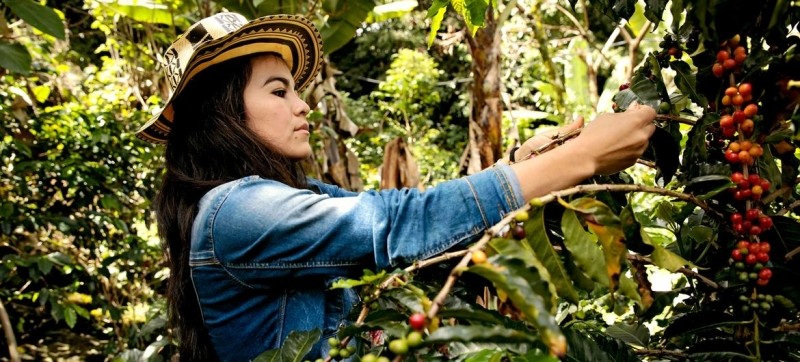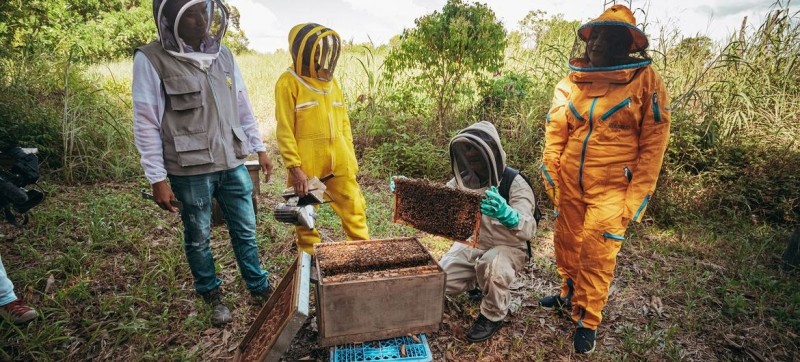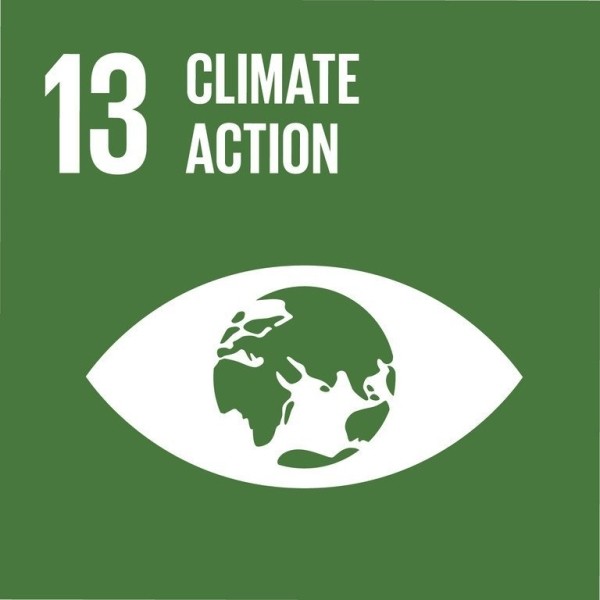
© UN Women/Ryan Brown Deyanira Cordoba is one of many coffee-growing women of Tablón de Gómez, in the Nariño region of Colombia.
The Climate Promise 2025 aims to accelerate efforts from local to international levels to take more ambitious steps to ensure the global temperature does not heat up beyond the 1.5° limit, a goal set with the 2015 Paris Agreement on climate change.
UN Secretary-General António Guterres said the initiative, driven by the UN Development Programme (UNDP), recognises an important truth in the climate battle: “it is not all doom and gloom”.
“Many countries have the will to take more ambitious steps on climate action, but the world needs to mobilise to ensure there is a way,” he said at the Below 1.5 by 2025: The Plan launch event.
Hosted by actor Ato Essandoh, the event featured conversations and pledges for action interspersed with videos aired from around the world, echoing a chorus of calls for world leaders to join and keep the promise.
Like water for coffee
Business leaders shared their experiences in aligning production practices with the Paris Agreement.
A representative from Lavazza in Italy described how UNDP-facilitated efforts are working towards such achievements as deforestation-free coffee in Ecuador alongside other innovations to come.
In addition, Indigenous groups from around the world shared their own initiatives, from climate-friendly coffee cultivation to raising awareness about mitigation and how to preserve and share traditional knowledge.

Fabio Rodríguez In northern Colombia, 80 Afro-Colombian families, 20 Indigenous families and 127 victims of violence joined forces to carry out one of the largest beekeeping projects in the country, with support from FAO.
Catapulting development
The UN chief said the Climate Promise 2025 represents the entire UN system coming together, helping governments rise to the moment, seize the opportunity and create new national climate plans aligned with the 1.5° limit.
UNDP’s Climate Promise has already worked with 128 countries on the last round of national climate plans to increase quality and ambition.
“Done right, national climate plans double as national investment plans and reinforce national development plans,” the UN Secretary-General said. “They can catapult sustainable development, connecting billions to clean power, boosting health, creating clean jobs and advancing equality.”
Tackling ‘climate chaos’
Mr. Guterres said the need is urgent, as this March was the planet’s hottest on record, the tenth month of record heat in a row, according to the Copernicus Climate Change Service.
From Europe to Asia, “climate chaos” keeps piling up, he said, pointing to record-breaking rainstorms in the United Arab Emirates, decimated crops and withering water supplies in Malawi, Zambia and Zimbabwe as well as recent warnings from scientists about global coral bleaching as a result of soaring ocean temperatures;
“What we are seeing is just a preview of the disaster that awaits unless we limit the long-term rise in global temperature to 1.5 degrees Celsius,” he warned. “It’s make or break for the 1.5 degree limit.”
‘The 1.5° limit is still possible, but not for long’
All countries must play their part, Mr. Guterres said, including the Group of 20 (G20), which accounts for around 80 per cent of emissions.
“We need concrete steps this year to get finance flowing and enable a surge in climate ambition,” he said.
He said the G20 “must lead” the way by submitting robust, ambitious and comprehensive new national climate plans well ahead of COP30 and committing to dramatically accelerate fossil fuel phase-out, detailing policies and regulations to provide certainty and predictability to markets, from carbon pricing to fossil fuel subsidies, and increasing financial and technology support to developing countries.
“The 1.5-degree limit is still possible, but not for long,” he said. “The United Nations is rallying to support you. Please, seize the opportunity. Together, let’s make the next round of climate action plans count.”

United Nations SDG 13
SDG 13: COMBAT CLIMATE CHANGE
- Strengthen resilience and adaptation to climate-related hazards and natural disasters
- Integrate climate change measures into national policies, strategies and planning
- Improve education, awareness-raising and human and institutional capacity on climate change mitigation, adaption, impact reduction and early warning
- Raise capacity for effective climate change-related planning and management in least developed countries
The UN Framework Convention on Climate Change (UNFCCC) is the primary international, intergovernmental forum for negotiating the global response to climate change.

